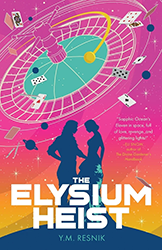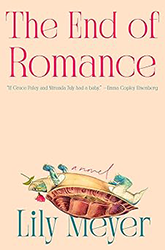The figure of Joseph Roth (1894−1939) continues to haunt us, an uncanny, indeed prophetic voice for our own time. In his novels and journalism of the 1920s and 1930s — above all in his now canonical novel about the Habsburg Empire, The Radetzky March(1932) — Roth chronicled the social and political upheavals in the wake of the Russian Revolution and the subsequent emergence of Nazism, a virulent nationalism which he was among the first writers based in Western Europe to warn against.
Born in the Polish shtetl of Brody, (now part of Ukraine), Roth left for Vienna and the West as a young man. He became a journalist, often reporting on the epic transitions in Jewish life; these writings were collected in The Wandering Jews (1927; 2001). An uprooted wanderer himself, Roth’s life embodied the dislocations and ruptures of Jewish modernity. What the narrator of Flight without End observes of the novel’s hero, Franz Tunda, could be said of Roth himself: “He was not at home in this world.”
The re-publication of Roth’s 1927 novel, Flight without End, represents an important literary event. Among Roth’s earlier novels, Flight is described by Keiron Pim, in his superb biography of Roth, as a “homecoming novel.” But like Roth, his journeying hero Franz Tunda never returns to any homeland, either real or imagined; a liminal figure, Tunda remains suspended, a lost soul in physical and spiritual limbo: “Franz Tunda was a young man without a name, without importance, without rank, without title, without money and without occupation — homeless and stateless,” Roth wrote.
Flight without End follows Tunda on a comically pathetic quest to reunite with his would-be fiancée, Irene, whom he believes to be living in Paris and whose picture he carries near his heart, sewn into the lining of his threadbare jacket. During his journey through post-revolutionary Russia and Eastern Europe, and his eventual arrival in Paris, the narrator inserts sly “reports” he receives from his “spiritual associate,” Tunda himself.
The questing figure of Tunda — “a man truly indifferent,” in the narrator’s frank assessment, allows Roth to demystify all modes of ideologically-imposed belief systems. As the critic Barbara Probst Solomon observes, Roth “was one of the small group of intellectuals who immediately understood the dangers of both Fascism and Stalinism.”
At the beginning of Flight, the newly-displaced Tunda falls in love with the fiercely politically correct Natasha while visiting Moscow soon after the Revolution. At first they bask in their shared, revolutionary-sanctioned love; their passion quickly cools, however, and Natasha accuses her would-be lover of embracing a “bourgeois” mentality and ends their short-lived relationship. Rejecting Natasha’s utopian-sexual vision, Tunda sees only “Death, red Death, which strode day and night over the earth to magnificent marching music.…Now this great red death had become the order of the day.”
The balance of Flight without End charts Tunda’s journey, through a series of unsatisfying relationships, toward an imagined reunion with Irene, an elusive figure whose memory haunts his dreams. At some level, Tunda’s yearning represents Roth’s own chronic, consuming yearning, an ache in his uprooted Jewish soul that, it seems clear, could never be soothed. He remained haunted by his own imagined happier past as a Jew living in the safer, if doomed, Hapsburg Empire.
In the end, Tunda is “overcome by homesickness.” “I drift with the wind,” he declares. Importantly, Tunda’s self-alienation enables Roth, through his fictional creation, to see all systems of belief as symptoms of false consciousness. In the end, Tunda brutally concludes, “We are all strangers in this world, we come from the realm of the dead.”
Joseph Roth died in Paris in 1939, at the age of forty-four, an alcoholic living out of a suitcase and moving from hotel to hotel, a witness to the barbarism ascending throughout Europe. Roth would not recover from the inner demons that afflicted him. “Wherever I am unhappy is my home,” he once confessed. The re-publication of Flight without End offers a powerful testament to Roth’s continuing relevance to the upheavals and dislocations we see everywhere in our own time.
Donald Weber writes about Jewish American literature and popular culture. He divides his time between Brooklyn and Mohegan Lake, NY.





